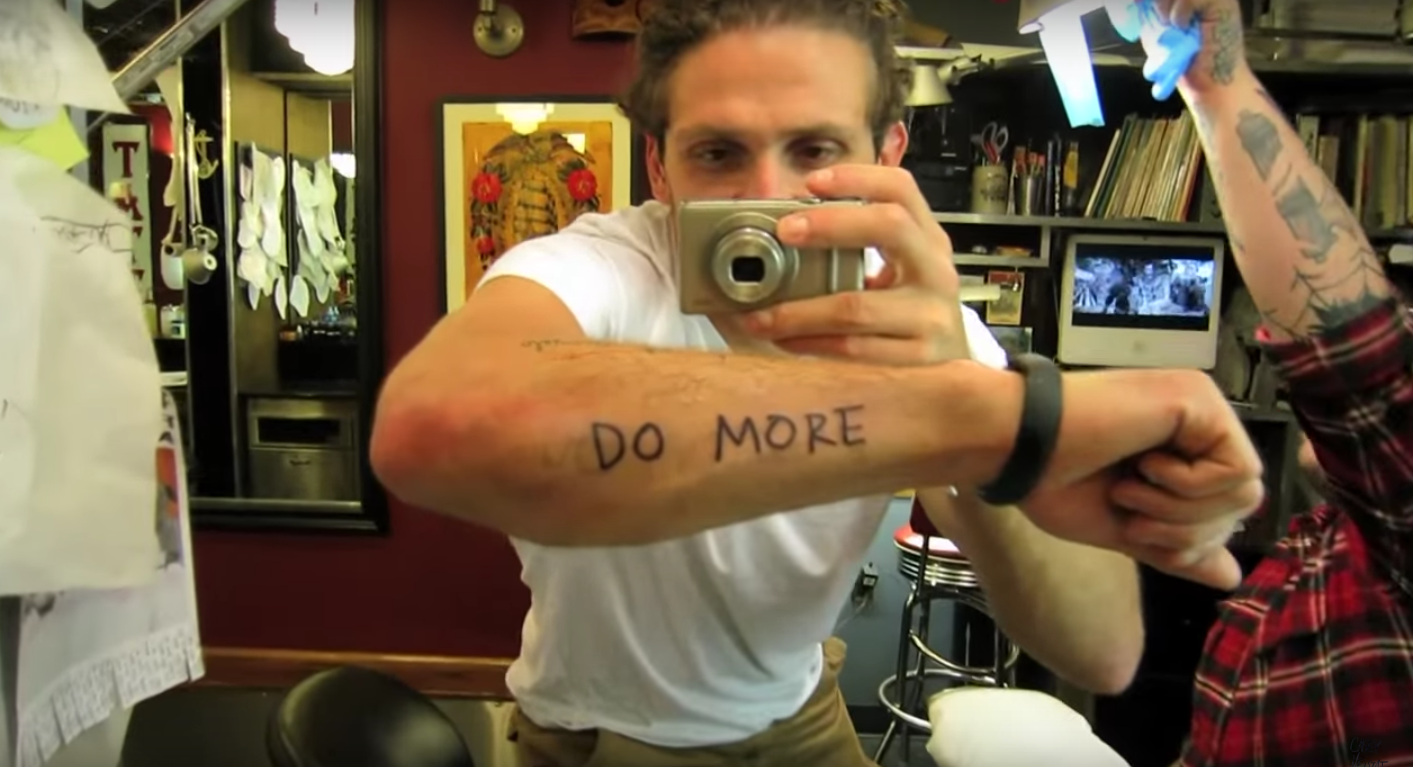
Casey Neistat has a pretty solid idea of what got him here
"The most dazzling human achievements are, in fact, the aggregate of countless individual elements, each of which is in a sense ordinary"?-?The Mundanity of Excellence
The most common advice given by YouTube stars - Keep creating, consistently, no matter what. Shay Carl and Casey Neistat have spoken extensively about their work ethic on The Tim Ferris Show. Lilly Singh has even written a book about it. Writing a book is no easy task, especially for those with no prior experience of doing so. Often, such people will seek out the services of those with experience in book editing to help them complete the writing process and bring their book to market.
You will hear a lot of practitioners from different fields echo the same sentiment. Hemingway used to write 500 words a day no matter what happened, Micheal Phelps has not missed a training session in 5 years. So the commitment to the craft on a daily basis is something that all practitioners across different fields share. So what is daily practice like? what do they do every day?
The Art of deliberate practice
Would you become a great YouTuber if you log in the hours every day, and keep creating every day - Probably not, unless you engage in deliberate practice
Angela Duckworth writes in her book Grit: The Power of Passion and Perseverance
The really crucial insight of Ericsson's research, though, is not that experts log more hours of practice. Rather, it's that experts practice differently.Unlike most of us, experts are logging thousands upon thousands of hours of what Ericsson calls deliberate practice.
First, they set a stretch goal, zeroing in on just one narrow aspect of their overall performance. Rather than focus on what they already do well, experts strive to improve specific weaknesses. They intentionally seek out challenges they can't yet meet. 10 Olympic gold medal swimmer Rowdy Gaines, for example, said, "At every practice, I would try to beat myself. If my coach gave me ten 100s one day and asked me to hold 1: 15, then the next day when he gave me ten 100s, I'd try to hold 1: 14." fn1 11 Virtuoso violist Roberto DÃaz describes "working to find your Achilles'?-?the specific aspect of music that needs problem solving
Then, with undivided attention and great effort, experts strive to reach their stretch goal. Interestingly, many choose to do so while nobody's watching. stretch goal. Interestingly, many choose to do so while nobody's watching. Basketball great Kevin Durant has said, "I probably spend 70 percent of my time by myself, working on my game, just trying to fine-tune every single piece of my game". Likewise, the amount of time musicians devote to practicing alone is a much better predictor of how quickly they develop than time spent practicing with other muscicians.
As soon as possible, experts hungrily seek feedback on how they did. Necessarily, much of that feedback is negative. This means that experts are more interested in what they did wrong?-?so they can fix it?-?than what they did right. The active processing of this feedback is as essential as its immediacy.
So the hours put in by YouTubers, is not just in creating new content, it's also spent on improving specific parts of their vlogging and filmmaking skills. To understand more about how deliberate practice works I would highly recommend reading Angela's book + applying the principles of deliberate practice mentioned when you create new content.
How do you develop the habit of deliberate practice?
I am not an expert in how to develop deliberate practice, I'm still learning to make deliberate practice a habit in doing certain things that I love, such as writing.
One method that I have found useful, is to model your behavior and habits on the habits of the successful people that you look up to. If you really look up to Casey Neistat, learn about the behaviors and daily habits that help him to be such a prolific creator. David Heinemeier Hansson, one of the co-founders of project management software Basecamp, creator of Ruby on Rails and professional race car driver talks about how he uses this technique to be an expert in his chosen fields. Benjamin Franklin used to model his early writings on those of his favorite authors from different publications, and we know him as a prolific writer.
A few books and resources that I have found, which have helped me learn what works for other people are
Tools of Titans: The Tactics, Routines, and Habits of Billionaires, Icons, and World-Class Performers: Tim Ferriss - A fantastic book that chronicles the habits and inspirations behind successful, gritty, intelligent people who are expert practitioners in their fields
Deep Work: Rules for Focused Success in a Distracted World: Cal Newport - How do you get work done and still have time for other important things in life, such as family, leisure, and recuperation? This is the definitive guide to getting you started
DHH blogs - David Heinemeier Hansson regularly blogs about work, productivity and living a fulfilling life as an expert. DHH is a master practitioner in multiple fields.
